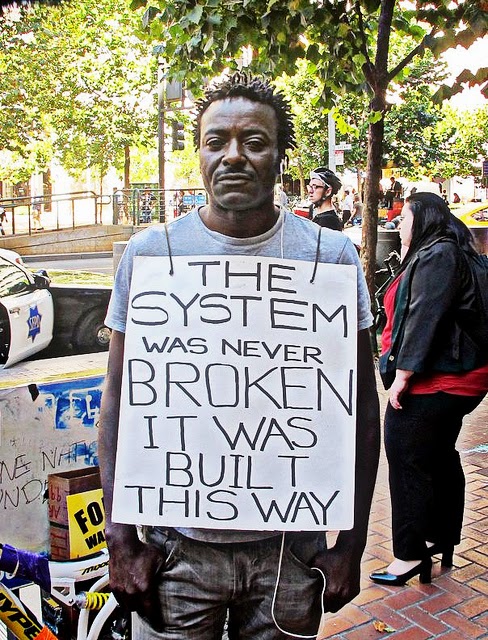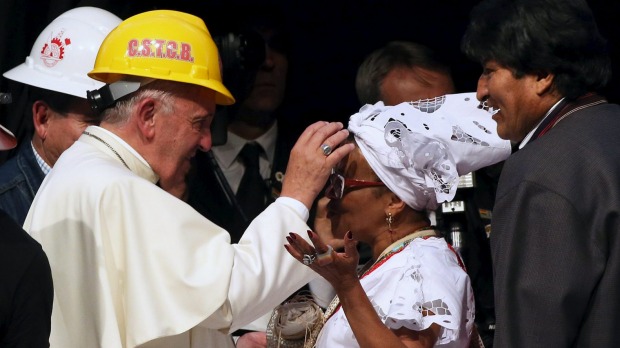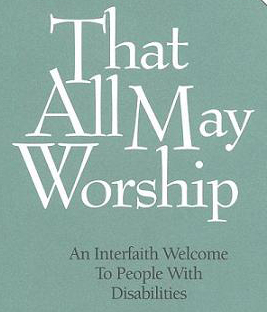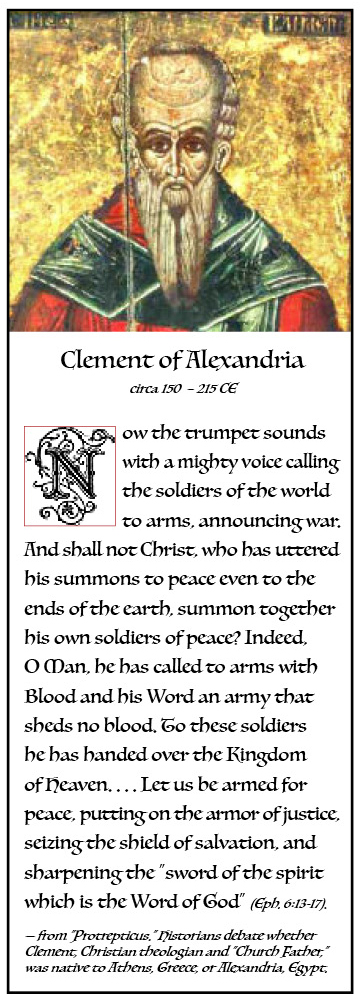16 July 2015 • No. 30
¶ Invocation. Who among you believe that / grieving and lamentation / are symptoms of despair. / Not so! / Only the hopeless are silent / in the face of calamity— / silenced because they no / longer aspire even to be heard, / much less heeded. The labor / of lament, on the other hand, / is premised on the expectation / that grief’s rule will be bound / by the Advent of Another. (Continue reading “The Labor of Lament” by Ken Sehested
 A newly hatched sea turtle (right) makes its way to the ocean. Photo by Courtney Campbell, “The Pendulum,” Elon University Student News.
A newly hatched sea turtle (right) makes its way to the ocean. Photo by Courtney Campbell, “The Pendulum,” Elon University Student News.
¶ Shores of hallelujah! “In Florida, sea turtles are making a comeback. The green turtle is leading the way. It's a species that a few decades ago was close to disappearing from the state, and the scope of its recovery is virtually unprecedented for an endangered species in the United States,” says National Public Radio host Robert Siegel. “As a scientist, I have to be a little bit careful about how I throw the word miracle around, but yes, I agree that, in this case, it is really quite extraordinary. —Lou Ehrhart, University of Central Florida researcher who has counted sea turtle nests in this refuge since the mid-'80s.
 ¶ A sign of the times if there ever was one. A day before announcing he is running for the GOP presidential nomination, Wisconsin Governor Scott Walker signed legislation slashing $250 million from the state’s higher education budget—at about the same time the Wisconsin Senate $250 million in public funds for a new Milwaukee Bucks basketball arena.
¶ A sign of the times if there ever was one. A day before announcing he is running for the GOP presidential nomination, Wisconsin Governor Scott Walker signed legislation slashing $250 million from the state’s higher education budget—at about the same time the Wisconsin Senate $250 million in public funds for a new Milwaukee Bucks basketball arena.
¶ But there’s also this sign of the times. “The massacre at the AME church in Charleston is just the latest in a string of racially charged events that have broken my heart. There are a lot of things to fix in this country, but history says if we don't address this canker, centuries in the making, these things will continue to happen. No matter what level privilege you have, when the system is broken everybody loses. We all have to speak up when injustice happens. No matter what.” —Rhiannon Giddens (you may know of her former bluegrass/Americana band, The Carolina Chocolate Drops), speaking of her “Cry No More” spare musical performance—drum, solo and chorus—in response to the Charleston massacre.
¶ Unvarnished history. The controversy over the Confederate Battle Flag has pushed us all (not just Southerners) to face a less varnished version of history, particularly with regards to the language of freedom. Two additional reminders of our more complicated history:
•In 1619, the year before the Mayflower arrived in New England, the Virginia immigrant community took delivery of African slaves from a Dutch trading ship.
• “Having fled European conformity, the Puritans [of “New England”] sought conformity of their own. The irony was not lost on the Old World. ‘Every party cries out for Liberty & toleration,’ said the Lord Bishop of Salisbury, ‘till they get to be uppermost, and then will allow none.’
“Anyone who did not believe as the Puritans did ‘shall have free liberty to keep away from us’ said the Massachusetts minister Nathaniel Ward in 1647.” —quoted in Jon Meacham, American Gospel: God, the Founding Fathers, and the Making of a Nation
¶ Confession. “If we can let ourselves go in prayer and speak all that is in our minds and hearts, if we can sit quietly and bear the silence, we will hear all the bits and pieces of ourselves crowding in on us, pleading for our attention. Prayer’s confession begins with this racket, for prayer is noisy with the clamor of all the parts of us demanding to be heard. The clamor is the sound of the great river of being flowing in us.” —Ann and Barry Ulanov, “Primary Speech”
 ¶ Breathtaking. The recent agreement by the P5+1 nations (US, China, Russia, United Kingdom, France and Germany) with Iran about its nuclear production capacity is a breathtaking achievement, one which required 20 tough months of negotiation, on top of a decade before that of European diplomatic work with Iran. Now, though, resistance both in Iran and in the US will stiffen. Communicate with your congressional leaders: Be loud and proud of diplomatic solutions.
¶ Breathtaking. The recent agreement by the P5+1 nations (US, China, Russia, United Kingdom, France and Germany) with Iran about its nuclear production capacity is a breathtaking achievement, one which required 20 tough months of negotiation, on top of a decade before that of European diplomatic work with Iran. Now, though, resistance both in Iran and in the US will stiffen. Communicate with your congressional leaders: Be loud and proud of diplomatic solutions.
Above right: Diplomats from the United States, the UK, France, China, Russia, Germany and the European Union have been negotiating with the Iranians since 2013. Photo: Carlos Barria.
¶ “The Iran nuclear deal, translated into plain English,” a good primer on the agreement.
¶ This “US-Iran relations: A brief guide” from the BBC provides needed perspective.
 ¶ Few here are aware of what Iranians have long known: Their country is surrounded by 48 US military bases. (Indicated by yellow stars on the map at left.) And that in 1953, with assistance from our British allies, the US overthrew the democratically-elected government of Prime Minister Mohammad Mosaddegh and installed the dictator Mohammad-Rezā Shāh Pahlavi, to maintain access to the country’s oil reserves.
¶ Few here are aware of what Iranians have long known: Their country is surrounded by 48 US military bases. (Indicated by yellow stars on the map at left.) And that in 1953, with assistance from our British allies, the US overthrew the democratically-elected government of Prime Minister Mohammad Mosaddegh and installed the dictator Mohammad-Rezā Shāh Pahlavi, to maintain access to the country’s oil reserves.
¶ “A new stage will begin, long and complex, on the road toward normalization, which will require the will to find solutions to the problems that have accumulated over more than five decades and hurt ties between our nations and peoples." —Cuban President Raul Castro, in a Wednesday speech on Cuban TV
¶ Making way for a new embassy. A worker (right) removes the "Cuban Interests Section" sign just days prior to the building being accredited as the Cuban Embassy, Wednesday, July 15, 2015, in Washington. Currently the  Cuban Interest Section in US is under the auspices of the Swiss Government and located in the Adams Morgan neighborhood of Washington. Photo by Bill Gorman, AP.
Cuban Interest Section in US is under the auspices of the Swiss Government and located in the Adams Morgan neighborhood of Washington. Photo by Bill Gorman, AP.
¶ Tongue-in-cheek satire from The New Yorker's Andy Borowitz. “Our adversarial relationships with Cuba and Iran took years of frostiness and saber-rattling to maintain,” Harland Dorrinson, the executive director of the Washington-based Institute for Infinite Conflict, said. “Thanks to the President, decades of well-crafted hostility have been thrown out the window.”
¶ Call to the table. "Call me foolish, but I'm guessing God would trade a little suffering piety in favor of more belly laughs." —Scott Pomfret, author of "Since My Last Confession: A Gay Catholic Memoir”
¶ The Pope is on a roll. “It was the strongest language I can remember a pope using about the rights of the poor and about social justice,” said James Martin, SJ, editor-at-large of America magazine. “In a stunning, nearly revolutionary, speech on Thursday in Bolivia, Pope Francis said that working for justice is not simply a moral obligation. For Christians, it is a commandment. ‘It is about giving to the poor and to people what is their right.’"
¶ Here is a sampling of Francis’ commentary, most of these in his 9 July address to participants of the second World Meeting of Popular Movements, Santa Cruz, Bolivia, an international body that brings together organizations of people on the margins of society, including the poor, the unemployed and peasants who have lost their land. (The Vatican hosted the first meeting last year.)
•"Colonialism, both old and new, which reduces poor countries to mere providers of raw material and cheap labor, engenders violence, poverty, forced migrations and all the evils which go hand in hand with these, precisely because, by placing the periphery at the service of the center, it denies those countries  the right to an integral development. That is inequality, and inequality generates a violence which no police, military, or intelligence resources can control."
the right to an integral development. That is inequality, and inequality generates a violence which no police, military, or intelligence resources can control."
Pope Francis donned a worker's hard hat to greet people in Santa Cruz, Bolivia, on July 9. Photo: Alessandro Bianchi.
•"The new colonialism takes on different faces. At times it appears as the anonymous influence of Mammon: corporations, loan agencies, certain 'free trade' treaties, and the imposition of measures of 'austerity' which always tighten the belt of workers and the poor.”
•"Do we realize that that system has imposed the mentality of profit at any price, with no concern for social exclusion or the destruction of nature?"
•"Let us say NO to an economy of exclusion and inequality, where money rules, rather than service. That economy kills. That economy excludes. That economy destroys Mother Earth."
•"Something is wrong in a world where there are so many farm workers without land, so many families without a home, so many laborers without rights, so many persons whose dignity is not respected."
•“Today, the scientific community realizes what the poor have long told us: harm, perhaps irreversible harm is being done to the ecosystem. The earth, entire peoples and individual persons are being brutally punished. And behind all this pains, death and destruction there is the stench of what [fourth century saint] Basil of Caesarea called 'the dung of evil.' An unfettered pursuit of money rules."
¶ Preach it. “Prophetic grief is different from pathetic grief. Pathetic grief is angry, mad, vicious, bitter, always blaming others. And then there is sympathetic grief, where we pass out sympathy but do not necessarily enter into the other person’s tragic moment. But then there is prophetic grief, where we stand inside of the other’s wounds, and hurt, and blood, and tears, and sorrow.” —Rev. Otis Moss Jr.
¶ “ExxonMobil, the world’s biggest oil company, knew as early as 1981 of climate change—seven years before it became a public issue, according to a newly discovered email from one of the firm’s own scientists. Despite this the firm spent millions over the next 27 years to promote climate denial. The email from Exxon’s in-house climate expert provides evidence the company was aware of the connection between fossil fuels and climate change, and the potential for carbon-cutting regulations that could hurt its bottom line, over a generation ago. . . .” —Suzanne Goldenberg, “Exxon Knew of Climate Change in 1981, Email Says – but It Funded Deniers for 27 More Years”
 ¶ Next week—26 July—marks the 25th anniversary of the signing of the Americans With Disability Act. The Interfaith Disability Advocacy Coalition has several free resources for use by local congregations, including a bulletin insert (to raise awareness), “Suggested Steps for Congregations” (to expand employment opportunities), and “That All May Worship: An Interfaith Welcome to People with Disabilities.”
¶ Next week—26 July—marks the 25th anniversary of the signing of the Americans With Disability Act. The Interfaith Disability Advocacy Coalition has several free resources for use by local congregations, including a bulletin insert (to raise awareness), “Suggested Steps for Congregations” (to expand employment opportunities), and “That All May Worship: An Interfaith Welcome to People with Disabilities.”
•For some keen theological reflections by one living with the aftereffects of traumatic brain injury, see Tamara Puffer’s “Nogginnotions” blog.
•Also see “By the Beautiful Gate,” a call to worship for use in a service commemorating the “Americans With Disability Act” passage in 1990.
¶ Altar call. “Make a mess, but then also help to tidy it up. A mess which gives us a free heart, a mess which gives us solidarity, a mess which gives us hope.” —Pope Francis, to a crowd of young people in Paraguay
 ¶ Benediction. “Shalom Aleichem" (Peace Be Upon You), by The Shuk, a Jewish roots-rock, genre-crossing musical group.
¶ Benediction. “Shalom Aleichem" (Peace Be Upon You), by The Shuk, a Jewish roots-rock, genre-crossing musical group.
# # #
Featured this week on prayer&politiks:
• “The Labor of Lament,” a poem about the healing capacity of lament
• “By the Beautiful Gate,” a call to worship for use in a service commemorating the “Americans With Disability Act” passage in 1990.
©Ken Sehested @ prayerandpolitiks.org. Language not otherwise indicated above is that of the editor. Don’t let the “copyright” notice keep you from circulating material you find here (and elsewhere in this site). Reprint permission is hereby granted in advance for noncommercial purposes.
Your comments are always welcomed. If you have news, views, notes or quotes to add to the list above, please do. If you like what you read, pass this along to your friends.


 A newly hatched sea turtle (right) makes its way to the ocean. Photo by Courtney Campbell, “The Pendulum,” Elon University Student News.
A newly hatched sea turtle (right) makes its way to the ocean. Photo by Courtney Campbell, “The Pendulum,” Elon University Student News. ¶ A sign of the times if there ever was one. A day before announcing he is running for the GOP presidential nomination, Wisconsin Governor Scott Walker signed
¶ A sign of the times if there ever was one. A day before announcing he is running for the GOP presidential nomination, Wisconsin Governor Scott Walker signed  ¶ Breathtaking. The recent agreement by the P5+1 nations (US, China, Russia, United Kingdom, France and Germany) with Iran about its nuclear production capacity is a breathtaking achievement, one which required 20 tough months of negotiation, on top of a decade before that of European diplomatic work with Iran. Now, though, resistance both in Iran and in the US will stiffen. Communicate with your congressional leaders: Be loud and proud of diplomatic solutions.
¶ Breathtaking. The recent agreement by the P5+1 nations (US, China, Russia, United Kingdom, France and Germany) with Iran about its nuclear production capacity is a breathtaking achievement, one which required 20 tough months of negotiation, on top of a decade before that of European diplomatic work with Iran. Now, though, resistance both in Iran and in the US will stiffen. Communicate with your congressional leaders: Be loud and proud of diplomatic solutions. ¶ Few here are aware of what Iranians have long known: Their country is surrounded by 48 US military bases. (Indicated by yellow stars on the map at left.) And that in 1953, with assistance from our British allies, the US overthrew the democratically-elected government of Prime Minister Mohammad Mosaddegh and installed the dictator Mohammad-Rezā Shāh Pahlavi, to maintain access to the country’s oil reserves.
¶ Few here are aware of what Iranians have long known: Their country is surrounded by 48 US military bases. (Indicated by yellow stars on the map at left.) And that in 1953, with assistance from our British allies, the US overthrew the democratically-elected government of Prime Minister Mohammad Mosaddegh and installed the dictator Mohammad-Rezā Shāh Pahlavi, to maintain access to the country’s oil reserves. Cuban Interest Section in US is under the auspices of the Swiss Government and located in the Adams Morgan neighborhood of Washington. Photo by Bill Gorman, AP.
Cuban Interest Section in US is under the auspices of the Swiss Government and located in the Adams Morgan neighborhood of Washington. Photo by Bill Gorman, AP. the right to an integral development. That is inequality, and inequality generates a violence which no police, military, or intelligence resources can control."
the right to an integral development. That is inequality, and inequality generates a violence which no police, military, or intelligence resources can control." ¶ Next week—26 July—marks the 25th anniversary of the signing of the Americans With Disability Act. The Interfaith Disability Advocacy Coalition has several free
¶ Next week—26 July—marks the 25th anniversary of the signing of the Americans With Disability Act. The Interfaith Disability Advocacy Coalition has several free  ¶ Benediction. “
¶ Benediction. “ ¶ Invocation. Listen, O people of the Way, and take note. Your ancestors were once illegal aliens in the land of Southern Appalachia. Boat people, all of you, undocumented immigrants. Scots-Irish trash; crackers and kaffirs, wetbacks and wops; gooks, goyim, gringos and gypsies. / Strangers we were, with no stake in the Promise; hopeless, helpless, beggarly-born. (Continue reading “
¶ Invocation. Listen, O people of the Way, and take note. Your ancestors were once illegal aliens in the land of Southern Appalachia. Boat people, all of you, undocumented immigrants. Scots-Irish trash; crackers and kaffirs, wetbacks and wops; gooks, goyim, gringos and gypsies. / Strangers we were, with no stake in the Promise; hopeless, helpless, beggarly-born. (Continue reading “ ¶ “In the immediate aftermath of the massacre in Charleston, South Carolina, the the US House of Representatives epresentatives Appropriations Committee quietly rejected an amendment that would have allowed the Centers for Disease Control and Prevention to study the underlying causes of gun violence.” —“
¶ “In the immediate aftermath of the massacre in Charleston, South Carolina, the the US House of Representatives epresentatives Appropriations Committee quietly rejected an amendment that would have allowed the Centers for Disease Control and Prevention to study the underlying causes of gun violence.” —“ ¶ Megamouth Donald Trump, currently polling second among Republican candidates, recently had some scurrilous comments about undocumented Mexican immigrants—comments which may force other GOPers to make more substantive policy proposals on the topic of immigration. This fall would be a good time to plan special Christian education programs on the topic. Among the resources you can consider are “
¶ Megamouth Donald Trump, currently polling second among Republican candidates, recently had some scurrilous comments about undocumented Mexican immigrants—comments which may force other GOPers to make more substantive policy proposals on the topic of immigration. This fall would be a good time to plan special Christian education programs on the topic. Among the resources you can consider are “ ¶ Gimme that REALLY old time religion. “So now the LORD says, "Stop right where you are! Look for the old, godly way, and walk in it. Travel its path, and you will find rest for your souls” (Jeremiah 6:16a, b).
¶ Gimme that REALLY old time religion. “So now the LORD says, "Stop right where you are! Look for the old, godly way, and walk in it. Travel its path, and you will find rest for your souls” (Jeremiah 6:16a, b). ¶ It was a “controversial sermon” earlier this year that got MidAmerica Nazarene University Chaplain Randy Beckum into trouble with his school’s administration. Some in his chapel audience were upset by his suggestion that Christians should take seriously Jesus’ injunction to love one’s enemies and his questions about Christians’ use of violence. The Olathe, Kansas, school’s president issued a statement affirming academic freedom, even when the opinions “may not reflect official policy . . . and our core values.” —Christian Century
¶ It was a “controversial sermon” earlier this year that got MidAmerica Nazarene University Chaplain Randy Beckum into trouble with his school’s administration. Some in his chapel audience were upset by his suggestion that Christians should take seriously Jesus’ injunction to love one’s enemies and his questions about Christians’ use of violence. The Olathe, Kansas, school’s president issued a statement affirming academic freedom, even when the opinions “may not reflect official policy . . . and our core values.” —Christian Century ¶ This just in. South Carolina Governor Nikki Haley signed legislation authorizing the removal of the Confederate battle flag from the state capitol grounds. Last week the SC Senate easily approved the measure. Following 13 hours of debate that ended shortly after midnight Wednesday, the House followed suit. The flag is scheduled to be lowered at 10 a.m. tomorrow.
¶ This just in. South Carolina Governor Nikki Haley signed legislation authorizing the removal of the Confederate battle flag from the state capitol grounds. Last week the SC Senate easily approved the measure. Following 13 hours of debate that ended shortly after midnight Wednesday, the House followed suit. The flag is scheduled to be lowered at 10 a.m. tomorrow. “But fiestas, Elizondo affirms, have also eschatological elements that are prophetic and represent a call to action. While these fiestas may be used in some settings as a sort of drug to pacify the people, a true fiesta is a celebration of a new future in God. ‘In these fiestas, we rise above our daily living experiences of death to experience life beyond death. . . . Fiesta is a foretaste and experience, even if for a brief moment, of the ultimate accomplishment (eschatological banquet).’” —Nora O. Lozano, “A Summer of Baptist Fiestas, Baptist News Global
“But fiestas, Elizondo affirms, have also eschatological elements that are prophetic and represent a call to action. While these fiestas may be used in some settings as a sort of drug to pacify the people, a true fiesta is a celebration of a new future in God. ‘In these fiestas, we rise above our daily living experiences of death to experience life beyond death. . . . Fiesta is a foretaste and experience, even if for a brief moment, of the ultimate accomplishment (eschatological banquet).’” —Nora O. Lozano, “A Summer of Baptist Fiestas, Baptist News Global